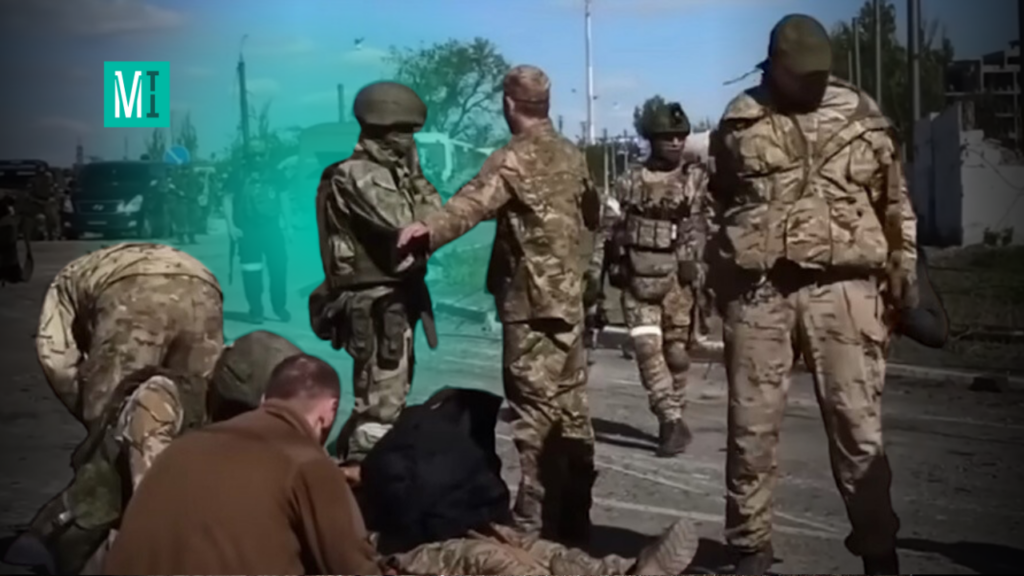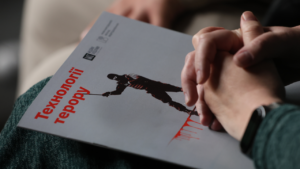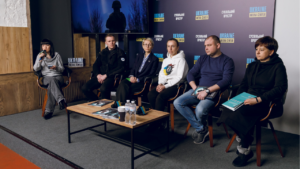The deaths of Ukrainian soldiers in Russian captivity: the MIHR analysis presented

According to the Ministry for Reintegration, 49 Ukrainians died in Russian captivity between 24 February 2022 and 16 November 2023. As of January 2024, MIHR learned about 21 Ukrainian prisoners of war who died directly in the detention facilities. These figures do not include the Azov Regiment fighters killed in Olenivka on 29 July 2022. There are also known cases of execution immediately after being taken prisoner. MIHR presented an analysis of what is happening to Ukrainian prisoners of war.
In preparing this article, MIHR delved into the testimonies of civilians and the military released from Russian captivity, and information from the families of deceased prisoners of war. In addition, MIHR scrutinized data from the Ministry for Reintegration, the Coordination Headquarters for the Treatment of Prisoners of War, and the International Commission on Missing Persons. The aim of the analysis is to highlight the inadequate treatment of Ukrainians in Russian captivity and the challenges in ensuring their rights, and to hold those responsible for torture accountable.
How Russia kills Ukrainian prisoners of war
Russians torture and kill prisoners of war at various stages of their captivity. Some are executed immediately upon being taken prisoner of war, such as Oleksandr Matsiyevsky, who was shot dead for saying “Glory to Ukraine!”, while others are tortured in detention facilities. MIHR journalist Maria Klymyk recounts instances where Russians beat captives to death during the reception process or tortured them with electric shocks resulting in heart failures.

Maria Klymyk, MIHR journalist. Photo by Viktor Kovalchuk
Bohdan Slobodyan, a former prisoner of war, became a witness to one of the deaths due to torture in captivity. He recounted the story of a Ukrainian soldier who was severely tortured by the Russians for several months. Finally, he was taken away by an ambulance to be never seen again:
“They did not let him sleep at all. He spent an all-time high of seven days without sleep. He was beaten up three to four times a day. He was no longer himself. On 31 December before New Year’s Day I heard a body being dragged from the second floor. He wasn’t breathing or screaming anymore.”

Bohdan Slobodyan, a former prisoner of war. Photo by Viktor Kovalchuk
The MIHR analysis also states that the International Committee of the Red Cross is unable to verify the conditions of detention of Ukrainian prisoners of war because the Russians do not allow representatives of the organization access the detention facilities. Notably, the ICRC did not reach the site of mass murder in Olenivka, where at least 47 prisoners of war were killed and over 120 wounded. MIHR interviewed a witness, a military medic who tried to save the victims. He said that the prison supervisors did not provide medical assistance, and that they were taken to hospital only after several hours of the terrorist act. During this time some of the wounded bled out. In addition, a number of prisoners died on the way to the hospital due to horrific transportation conditions.
Anastasia Hondyul, the wife of the Azov Regiment fighter Artem Hondyul, who was severely wounded in the Olenivka attack, saw a video featuring her husband on one of the Russian Telegram channels in August 2022. At that time Artem Hondyul was in hospital in Donetsk.
“Words cannot describe what it was like to see him. My husband weighed approximately 40-45 kg. He had become so thin that resembled a teenager with the head of my husband,” she recounted.

Anastasia Hondyul, the wife of the Azov Regiment fighter Artem Hondyul, who was severely wounded in the Olenivka attack. Photo by Viktor Kovalchuk
In September 2022, the Russians showed how they were transporting POWs back to Olenivka from the hospital. Since then, Anastasia has no idea about her husband’s whereabouts and condition.
Control and access to the Russian government. How to hold those responsible for torture and deaths of POWs accountable
Mindful of the numerous violations by the Russians of the regulations for the treatment of prisoners of war, it is critical to investigate the relevant cases and punish the culpable. The MIHR analysis emphasizes that a state Ukraine must consistently communicate with the families of deceased POWs, systematically handle criminal cases, and develop standards for the investigation of cases of deaths in captivity. At the same time, the International Committee of the Red Cross must demand that Russia provides access to the facilities where prisoners of war are kept to monitor their condition, and determine the causes of deaths.
MIHR Coordinator Tetyana Katrychenko emphasizes that Russian prison supervisors treat Ukrainian prisoners of war with incredible cruelty. The only way to alleviate the suffering of POWs is to keep control over the conditions of their detention.
“This is where the gap is. We must request international organizations and our international partners for such control.”

Tetyana Katrychenko, MIHR Coordinator. Photo by Viktor Kovalchuk
According to Andriy Yakovlev, an attorney and international law expert at MIHR, Ukrainian prisoners of war have no legal protection. Consequently, Russian prison supervisors treat them as they see fit. Often, such treatment leads to deaths among the prisoners of war. Andriy Yakovlev notes that these cases are systemic. It looks like someone either orders the ill-treatment of Ukrainian POWs or deliberately fails to control the situation. These can be classified as crimes against humanity.
“We need to reach out to higher authorities to enable a shift in the treatment of our prisoners of war because the unchanged treatment leads to deaths,” says Mr. Yakovlev.

Andriy Yakovlev, an attorney and international law expert at MIHR. Photo by Viktor Kovalchuk
However, he is confident that it is of utmost importance to ensure that the verdicts of Ukrainian and other countries’ courts regarding war criminals are enforced beyond borders.
“Conviction does not yet lead to punishment. Justice is served only when an individual is held accountable and undergoes punishment. Only then can we hope that this will contribute to the reduction and prevention of suffering.”
Read the full analysis below.
Maryna Kulinich, MIHR journalist
This article was written with the support of the European Union and the International Renaissance Foundation as part of the “European Renaissance of Ukraine” joint initiative. The views and opinions expressed herein are that of the authors and do not necessarily state or reflect those of the European Union or the International Renaissance Foundation.








